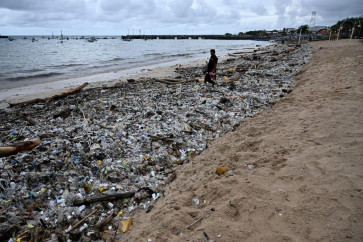Village Law: A change is going to come
The newly-passed Village Law is expected to bring change to the grassroots level, after being neglected for years under the New Order regime, a lawmaker has said
Change text size
Gift Premium Articles
to Anyone

T
he newly-passed Village Law is expected to bring change to the grassroots level, after being neglected for years under the New Order regime, a lawmaker has said.
Chairman of the House of Representatives special team tasked to deliberate the law, Budiman Sujatmiko of the Indonesian Democratic Party of Struggle (PDI-P), said that for decades the country's technocratic mode of development had ignored those living in rural areas.
He said that the aspirations of the people had been all but ignored in favor of foreign debt, foreign direct investment and revenue from oil.
Despite economic growth, rural areas ' where the majority of the population lives ' have not prospered from the 'trickle-down' effect and are now mired in poverty.
'A lot of land in rural areas has been sold or rented to investors, so the once fertile land is now the site of shops, malls and quarries,' he said.
Budiman also said that the government neglected rural development in terms of budget allocation.
Last year, only 2.6 percent of the Rp 1,600 trillion (US$136 billion) state budget was assigned to rural areas, despite about 60 percent of the population calling the countryside their home.
But with the 2013 Village Law, he said, would come change as residents would now be involved in the development of their villages.
'The law enables every village to decide what kind of entrepreneurship to employ to develop their villages into sustainable, or even rich, villages,' he said.
Budiman acknowledged that the law could be dismissed as utopian by some, but in some countries such a breakthrough was not impossible.
He said that three nations China, Brazil and Israel had developed strategies to improve the lives of the people in rural areas.
'Huaxi village in China, for example, proves the participatory technique proposed in the Village Law can be successful. It has been under a project such as this since the 1960s and now its income per capita is $100,000.
'It seems impossible but it's true. It is the richest village in China,' Budiman said.
Budiman, who is a member of House of Representatives Commission II overseeing home affairs said that the law was actually the brainchild of Megawati Soekarnoputri, the PDI-P chair and daughter of former president Sukarno, who aspired to facilitate a prosperous agrarian country.
'Indonesia could still be an industrial country, but its industrial policy should run parallel to the development of rural areas,' Budiman said during a visit to The Jakarta Post earlier this week. (gda)









